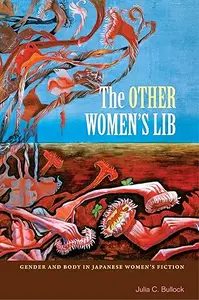
Free Download Julia C. Bullock, "The Other Women’s Lib: Gender and Body in Japanese Women’s Fiction"
English | 2010 | pages: 218 | ISBN: 0824833872 | PDF | 1,1 mb
The Other Women’s Lib provides the first systematic analysis of Japanese literary feminist discourse of the 1960s―a full decade before the "women’s lib" movement emerged in Japan. It highlights the work of three well-known female fiction writers of this generation (Kono Taeko, Takahashi Takako, and Kurahashi Yumiko) for their avant-garde literary challenges to dominant models of femininity. Focusing on four tropes persistently employed by these writers to protest oppressive gender stereotypes―the disciplinary masculine gaze, feminist misogyny, "odd bodies," and female homoeroticism―Julia Bullock brings to the fore their previously unrecognized theoretical contributions to second-wave radical feminist discourse.
In all of these narrative strategies, the female body is viewed as both the object and instrument of engendering. Severing the discursive connection between bodily sex and gender is thus a primary objective of the narratives and a necessary first step toward a less restrictive vision of female subjectivity in modern Japan. The Other Women’s Lib further demonstrates that this "gender trouble" was historically embedded in the socioeconomic circumstances of the high-growth economy of the 1960s, when prosperity was underwritten by an increasingly conservative gendered division of labor that sought to confine women within feminine roles. Raised during the war to be "good wives and wise mothers" yet young enough to take advantage of the opportunities presented to them by Occupation-era reforms, the authors who fueled the 1960s boom in women’s literary publication staunchly resisted normative constructions of gender, crafting narratives that exposed or subverted hegemonic discourses of femininity that relegated women to the negative pole of a binary opposition to men. Their fictional heroines are unapologetically bad wives and even worse mothers; they are often wanton, excessive, or selfish and brazenly cynical with regard to traditional love, marriage, and motherhood.
The Other Women’s Lib affords a cogent and incisive analysis of these texts as feminist philosophy in fictional form, arguing persuasively for the inclusion of such literary feminist discourse in the broader history of Japanese feminist theoretical development. It will be accessible to undergraduate audiences and deeply stimulating to scholars and others interested in gender and culture in postwar Japan, Japanese women writers, or Japanese feminism.










Leave a Reply
You must be logged in to post a comment.